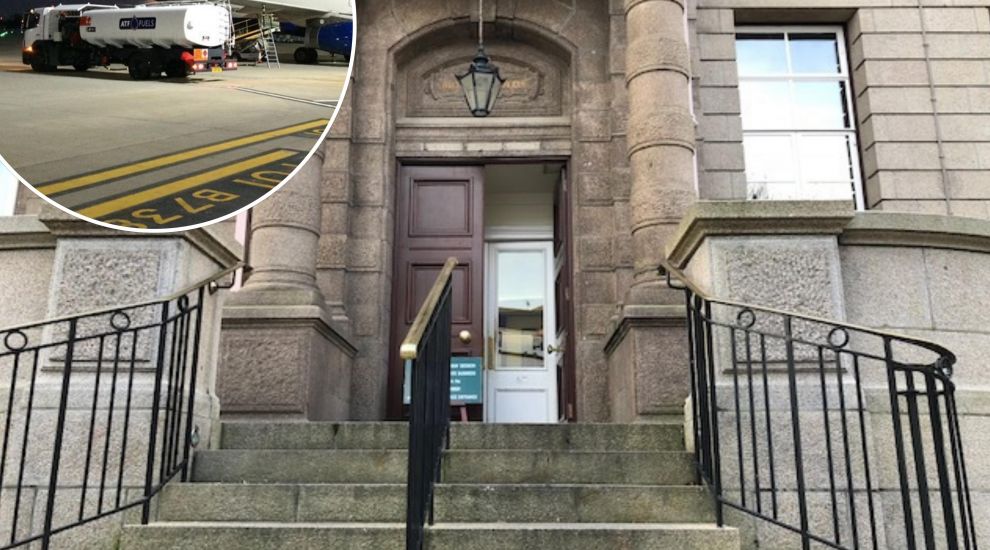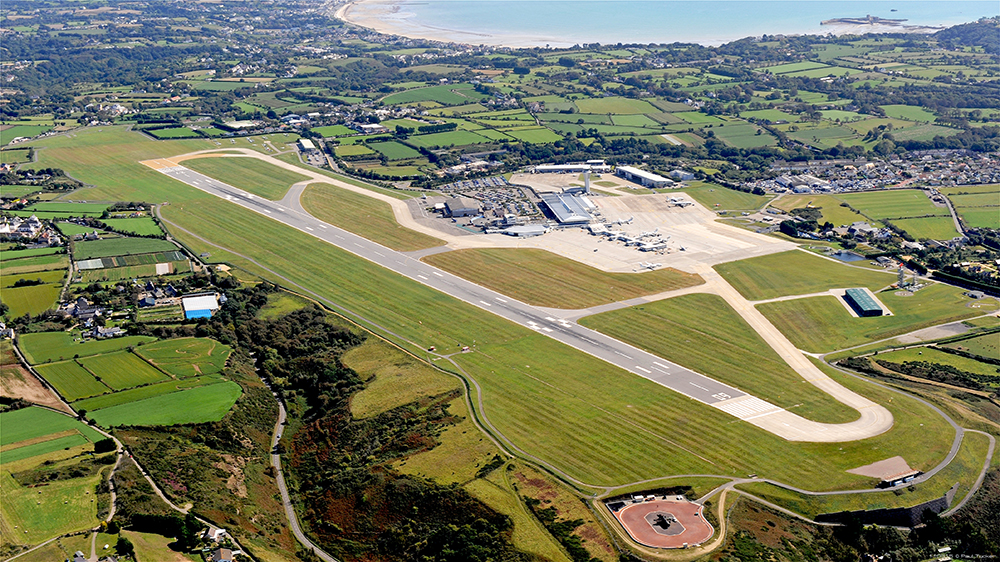

ATF Fuels did not abuse its dominant position at the Airport fuel farm, the Royal Court has concluded, setting aside a decision by the regulator who said the company had refused to supply an operator with fuel for resale and had charged them more than previous suppliers.
It is the fourth time the Royal Court has quashed a JCRA decision, having previously lost against Clear Mobitel in 2011 and in 2013 and 2017 against JT.
In March 2016, the JCRA ruled that ATF Fuels had abused a dominant market position, while providing aviation fuel at the airport on an interim basis after Rubis withdrew from the operation. The regulating body based its decision on the fact that ATF Fuels had refused to supply Aviation Beauport (ABP), a fixed-based operator, with fuel for resale, and had charged them more than previous suppliers.
The fuel provider appealed the decision to the Royal Court and the case was heard by the Bailiff Sir William Bailhache, sitting with Jurats Collette Crill and Jerry Ramsden, in October 2017. Advocate John Kelleher represented ATF Fuels with Advocate Alistair Lindsey while Advocate Nigel Sanders was representing the JCRA.
The Royal Court has now published its judgment and decided to set aside the JCRA's decision, which could have potentially important implications for the way the competition regulator oversees local markets.
In their judgment, they noted that ATF's entry into the market resulted "...in a significant drop in the price of aviation fuel in the relevant period."
While the JCRA said that ATF Fuels imposing a condition of trading in its sale of aviation fuel to ABP - which said that ABP should not re-sell that fuel to its customers - amounted to an abuse, the Court disagreed. They noted that it would imply that the fuel offered to ABP would be cheaper than the one offered to ABP's customers, and that ABP could sell to its customers at a cheaper price.
"It is a relatively small window of competition because one could assume that ABP would not be purchasing fuel for sale at a loss. On the other hand, if the Appellant (ATF Fuels) were in fact selling aviation fuel to ABP at the same price as it offered aviation fuel to ABP’s customers, competition would not in fact be reduced," the Court said.
The Court ruled that there was no reason why ABP could not have acted "...as agent for their client in acquiring the fuel, just as it turns out Gama Aviation, ABP’s successor in the fixed base operation for providing ground-handling services does at present," adding that it showed there had been no impact on the downstream market.
They also concluded that there had been no price penalty for the customers of ABP and that ATF was entitled so to arrange its business "...in a way that kept its own risks under its own control."

Pictured: ATF Fuels has been operating as the only fuel provider at the airport since Rubis withdrew in 2014.
They added that the fact that Fuel Supplies / Rubis had operated in a different way did no justify that ATF was required to operate in the same way, especially since ABP were not its customers and ATF was itself a new entrant on to the market.
"We can see no justification for insisting that simply because a previous operator had acted in a particular way, a new entrant onto the market must act in the same way. That does not seem to us to be one of the purposes of competition law, and indeed seems to us to be intrinsically inimical to competition - on the assumption, in general terms, that more than one operator on the market was a possibility, the fact that there were different methodologies for operating in that market would seem to increase competition, and any arrangement which required the same basis for operation would tend to be anti-competitive."
The Court accepted that ATF was "objectively justified" in its decision not to supply to ABP for resale, "even if the refusal to supply aviation fuel to ABP fell to be treated as an abuse of the dominant position on other grounds." "The basis for that submission is that the Appellant had made a considerable investment in setting up arrangements which would enable it to supply aviation fuel, and that it should not be required to share with ABP the fruits of that investment."
Furthermore, they noted that ABP would have required a licence from Ports of Jersey Limited before it could engage in any re-selling, which they didn't. Yet, the JCRA concluded that Jersey law did not prohibit ATF from providing fuel for re-sale. The Court's view was while there was no statutory provision, they didn't think it was reasonable "...to conclude that the Appellant should be required to do so even in circumstances where the re-seller would be acting illegally by re-selling the fuel to one of its customers."
They added that the JCRA rationale would have meant ATF was engaging in unlawful activities: "If ABP did not have the necessary licence, it follows that the Appellant, as its agent, was completing the unlawful act on its behalf. In this context, it may or may not be the case that such a delivery would amount to a criminal offence – it is sufficient, in our judgment, that the delivery required a consent from Ports of Jersey Limited, and no such consent had been given."
Finally, regarding the unlawful price discrimination, the Court noted that JCRA only noted a price abuse in relation to ABP, although 45 customers were charged the same price as they were. "In other words, charging for aviation fuel at PAP was completely legitimate for all other customers of the Appellant except ABP." They accepted that a number of elements could affect the prices applied, including the volumes purchases, whether the deliveries are scheduled or not and when the agreement with the customer was first signed.
However the Court noted that their judgment did not give ATF "...a blank cheque to charge in the future whatever it likes, because it has a dominant position and one of the purposes of the Law is to ensure that such a position is not abused. On the other hand, we think it is right to give credit to the Appellant for the significant impact which its business has had on aviation fuel prices in the Island since it started business. In giving that credit, we record also that we were told – and this was not contested by the JCRA – that the quality of aviation fuel now supplied is an improvement on what was available previously. "
They concluded: "At all events, we are satisfied on the balance of probabilities that the Appellant, for the reasons given, has not abused its dominant position in the market for the sale of aviation fuel at Jersey Airport during the period in question, whether as a result of its refusal to sell to ABP for the purposes of resale or by the pricing structure offered to ABP, namely PAP."
Comments
Comments on this story express the views of the commentator only, not Bailiwick Publishing. We are unable to guarantee the accuracy of any of those comments.